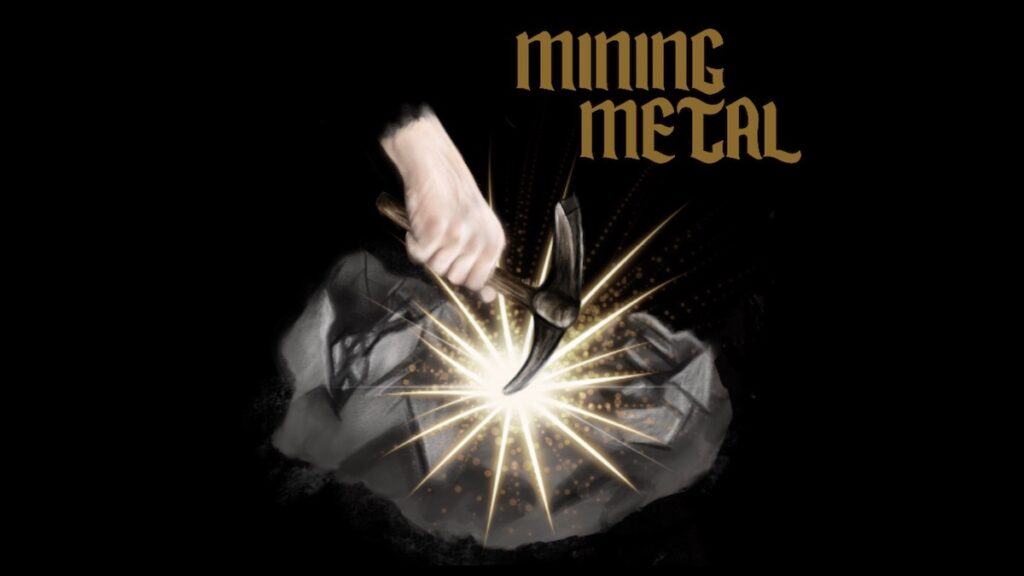Mining Metal is a monthly column from Heavy Consequence contributing writers Langdon Hickman and Colin Dempsey. The focus is on noteworthy new music emerging from the non-mainstream metal scene, highlighting releases from small and independent labels — or even releases from unsigned acts.
Guilt is a funny thing. While shame is often considered in some circles a teaching emotion, it more often has a deeply toxic effect, poisoning the image of the self and the trust in self to such a degree that it leaves people emotionally withered at best and likely to lash out at random at worst. Guilt, meanwhile, is the bedrock emotion behind that one. It is a mark, in a certain sense, of a true recalcitrance, a repudiation of past selves. There are many aspects of our heavily Christianized culture that are, to put it mildly, loathsome (shocker coming from a metal column!), but the notion of penitence and the grace of a penitent heart is not one of them. We all make mistakes; it is important when thinking of this to not be flippant, to think of mistakes as mere annoyance of others but sometimes very real and sometimes very deep harm. Sometimes, we tell ourselves this great harm is virtuous, that we are carrying out some celebratory and justified tas by hurting others so much. Other times, the farce of that logic is laid bare to us. It’s only a deliberately cowardly eye that never has to sit with this someday.
I had a discussion with a therapist a long time ago now about my ardent love of death metal. Given my lifelong struggles with guilt and shame, often outsized either from my wrongdoings (which, to be clear, are real) and indissolvable in time, she felt that perhaps engagement with such tremendously negative music was not the best for my mental well-being. It was then that I told her a thing I think we all know in heavy metal space. Death metal is not negative. It may dress itself in the macabre images of corpses ripped apart and the abyss of death itself, but most often this is a jubilant thing, ebullient, something almost marked more by joyous laughter than anything resembling guilt or shame. I did not tell her about doom metal. It’s that which I throw on when I either want to, in the spirit of grace and responsibility, explore my complicity in the harms of people around me or, in the spirit of malicious self-harm, tear myself apart for things now past that cannot be undone. I think a lot of people of a certain stripe, a political bent like mine, cleave to heavy metal in part for a virtuous sense of rebellion against oppression. It is harder and in many ways more necessary to use it to explore yourself, both the worthwhile and the ugly parts, and to make peace with that complex image.
Because we likewise tend, socially, to make the conditions of grace and forgiveness an already-perfection, which nullifies the fact that there is something to forgive at all. In this model, we do not allow people to change; the functional operation is discovering someone never was to blame, not that they were, that we still love them through their real flaw, that we work to rebuild and restructure things out of that care. There is a capriciousness and childishness to making your world around tedious neo-liberal images of self-care, cultivating a safety that is more often a lack of discomfort, and to avoid challenges that ultimately come down to language sets: how do we convey our boundaries and comforts to others in ways they might understand and how do we navigate the brackish water between each other in a meaningful and communal way. These are, admittedly, challenges not only of a lifetime but also challenges as-yet unsurmounted by mankind in general. We would not have one of our oldest discovered documents be mullings of law and justice, these topics would not form the functional root of nearly all religious and political spaces, were we comfortable in the idea that the problem is solved.
I say this because the other common thread for a lot of people in metal space is misanthropy. As much as it can be gleeful and cathartic aesthetic, driver of a lot of great art exploring a very real and ugly part so many of us carry, it’s something I see far too many people indulge either openly or clandestinely as the bedrock of their worldview. It is the fundamental thing that says me versus you, us versus them, that discomfort equals being unsafe and that being unsafe equals imminent threat. I, like many others, have PTSD from, well, things; the first lie of the traumatic mind is that we are always under maximal threat and that any response that quells that terror is justifiable. This wild traumatic misanthropic terror, whether justified or not, is the driver of current genocides in the Middle East, now spreading to more borders. Not that working on the perennial endless task of solving our troubled hearts would immediately create conditions of a ceasefire. But what else can we do? We are motes soon erased, dimming fires in cooling air.
– Langdon Hickman

